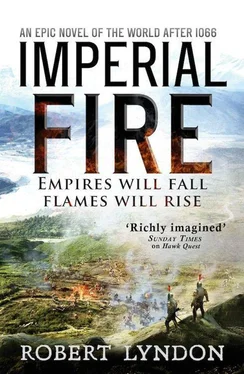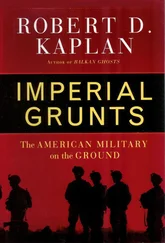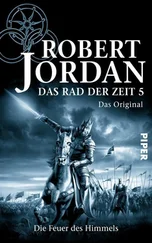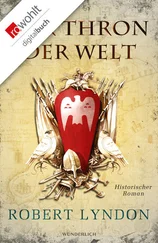Robert Lyndon - Imperial Fire
Здесь есть возможность читать онлайн «Robert Lyndon - Imperial Fire» весь текст электронной книги совершенно бесплатно (целиком полную версию без сокращений). В некоторых случаях можно слушать аудио, скачать через торрент в формате fb2 и присутствует краткое содержание. Жанр: Исторические приключения, на английском языке. Описание произведения, (предисловие) а так же отзывы посетителей доступны на портале библиотеки ЛибКат.
- Название:Imperial Fire
- Автор:
- Жанр:
- Год:неизвестен
- ISBN:нет данных
- Рейтинг книги:5 / 5. Голосов: 1
-
Избранное:Добавить в избранное
- Отзывы:
-
Ваша оценка:
- 100
- 1
- 2
- 3
- 4
- 5
Imperial Fire: краткое содержание, описание и аннотация
Предлагаем к чтению аннотацию, описание, краткое содержание или предисловие (зависит от того, что написал сам автор книги «Imperial Fire»). Если вы не нашли необходимую информацию о книге — напишите в комментариях, мы постараемся отыскать её.
Imperial Fire — читать онлайн бесплатно полную книгу (весь текст) целиком
Ниже представлен текст книги, разбитый по страницам. Система сохранения места последней прочитанной страницы, позволяет с удобством читать онлайн бесплатно книгу «Imperial Fire», без необходимости каждый раз заново искать на чём Вы остановились. Поставьте закладку, и сможете в любой момент перейти на страницу, на которой закончили чтение.
Интервал:
Закладка:
He sat back in his saddle. ‘They’re holding their ground.’
‘Skirmishing on the right,’ said Conrad.
Vallon’s attention flicked across the Byzantine front before returning to the grisly contest in the centre. The attack on the Varangians’ left flank had ground to a halt. Those terrible axes had wreaked havoc, throwing up a wall of dead horses. The cavalry couldn’t find a way through and while they wheeled and reared, the Vardariots poured arrows into them from close range.
Conrad turned. ‘Why doesn’t Guiscard throw his centre forward?’
Vallon rasped a knuckle along his teeth. ‘I don’t know. That’s what worries me.’
Unable to break the Varangian square, defenceless against the archers, the Norman cavalry wrenched their horses round and began streaming away, at first in trickles and finally in a flood, kicking up dust that obscured the formations.
Vallon stood upright in his stirrups. ‘No!’
Dim in the haze, the Varangians were pursuing their enemy, streaming like hounds after their hated foe. Vallon recognised Beorn by his vermilion beard, leading the reckless charge. Vallon kicked his horse and galloped towards the Grand Domestic’s regiment, swinging his arm to signal that there was no time to lose. ‘Follow them up!’
A few cavalrymen glanced at him before turning their attention back to the action, as if it were a drama staged for their benefit.
Vallon spurred back to his formation. ‘After them!’ he shouted. ‘Don’t engage without my order.’
His squadron clapped spurs to flanks and galloped after the fleeing Normans and the pursuing Varangians. Here and there pockets of cavalry had turned on their enemy and were surrounded and cut down.
Conrad drew level. ‘It’s not a feint. It’s a rout.’
Vallon pounded on. ‘For now it is.’
And for a while it was. In the panic of war, the Norman right wing fled back to the sea. Some of them stripped off their armour and plunged in, trying to reach their ships. The rest milled along the shore, not knowing which way to turn. A detachment of Norman cavalry and crossbowmen cut between them and the Varangians, led by a figure with blonde hair spilling below her helmet. Back and forth she rode, smiting the cowards, exhorting the rabble to regroup and unite against the enemy.
‘It’s true,’ said Vallon. ‘That’s Sikelgaita, Guiscard’s wife.’
Her intervention turned the tide. In ones and twos and then in tens and twenties, the cavalry regrouped and turned. The Varangians were scattered over half a mile of plain. They had fought a brutal battle and followed up in heavy armour to exterminate the old enemy. They were formationless and exhausted, unable to offer any concerted defence against the Norman counter-attack.
Vallon watched the ensuing slaughter in furious disbelief. Time and time again, Beorn had told him how the Normans’ feigned retreat at Hastings had lured the English shield wall to their destruction. And now it was happening again.
Conrad pranced alongside Vallon. ‘We could make the difference.’
‘No.’
Some of the Varangians, including Nabites their commander, managed to escape back to the Byzantine lines. Others fought their way through the Normans, gathering other survivors, making for a tiny, isolated chapel not far from the sea. By the time they reached the building, they must have numbered about two hundred — a quarter of the strength that had stepped out so bravely less than an hour before.
The chapel was too small to accommodate them and so many were forced to take refuge on its roof that the structure collapsed, casting them down among their comrades. Already the Normans were at work firing the building, piling brushwood around the walls and hurling burning brands over the eaves. Flames licked and then rose in smoky banners. Timbers crackled and Vallon heard the screams of men being consumed alive.
The door burst open and a dozen Varangians crashed out, led by Beorn, his beard scorched to stubble and his forehead blistered and boiled. He sliced through one Norman with a stroke that folded him over like a hinge before ten men hacked him down, flailing at his body as if he were a rat driven out of a rick at harvest time.
‘Here comes Palaeologus,’ said Conrad.
Out from the citadel rode its garrison. Almost immediately it met fierce opposition and the sally petered out.
‘Too little, too late,’ said Vallon.
A chorus of war cries heralded a charge by Guiscard’s regiment at the emperor’s exposed centre.
‘Back!’ yelled Vallon.
Led by Guiscard, the Norman cavalry bore down on the imperial standard, sweeping aside the Vardariot archers who contested their path. Clumsy in their layers of armour, the imperial force lumbered forward to meet the attack, the two sides colliding with a splintering crash.
Swirling dust obscured the fighting. Vallon drove his horse towards the cloud, straining to make out the two sides.
‘The Normans have broken the centre,’ he shouted.
They had split the Byzantine formation, driving a deep wedge into it.
Vallon checked that his squadron was with him and pulled his horse to the left. ‘Closer! Keep formation!’
He aimed for the imperial standard, the only fixed point on the battlefield. But then he realised it wasn’t fixed. It had been reversed and was withdrawing. And over on the right flank another Byzantine formation was streaming away.
‘Treachery!’ Conrad shouted. ‘The Serbians are deserting.’
Nor were they the only ones. Behind the heavy Byzantine cavalry, the Seljuks — all ten thousand of them — turned tail and fled before they’d struck a single blow.
‘Calamity,’ Vallon groaned. ‘Complete disaster.’
‘Look out behind!’ Conrad yelled, hauling his horse round.
Vallon spun to see a squadron of Norman lancers plunging out of the dust, hauberks flapping about their legs, lances couched.
‘Stand and engage,’ he yelled. ‘Archers!’
With their first volley, they toppled more than ten of the enemy, the powerful compound bows driving arrows through plate and mail.
Vallon drew a mace. ‘Javelins!’
Scores of missiles arced towards the pounding cavalry. Few reached their target. And then the enemy was on them. Vallon singled out an individual riding pell-mell towards him. His attacker jounced in the saddle, only his lance held steady. Waiting until the last moment, Vallon swerved away from the point and, leaning out with his weight on his right stirrup, smashed his mace into the Norman’s mailed head with a force that sent him somersaulting backwards over his horse’s tail.
Blood and brain spattered Vallon’s hand. Eyes darting right and left, he weighed up the situation. Some of the Normans had charged right through his squadron and were disappearing into the dust. Others had drawn their swords to engage at close quarters. While most of the squadron fought hand to hand, the horse archers circled the fray, shooting at targets as they presented themselves. The assault by sword and dart was more than the Normans could deal with and they broke off, one of them wrenching his horse around so violently that it lost its footing and collapsed, toppling on the rider with a force that broke his leg and made him scream. Falling, his helmet toppled off and his coif slid down his neck. One eye clenched in agony, he registered Vallon’s approach and his own execution.
Vallon leaned down and shattered his skull. ‘Mercy on your soul.’
Short as it was, the skirmish had left him disoriented. The billowing dust made it impossible to make sense of what was happening. The only thing he knew for certain was that the Byzantines had lost the day. If the emperor was dead, they might have lost an empire.
He brandished his mace. ‘Follow me!’
Читать дальшеИнтервал:
Закладка:
Похожие книги на «Imperial Fire»
Представляем Вашему вниманию похожие книги на «Imperial Fire» списком для выбора. Мы отобрали схожую по названию и смыслу литературу в надежде предоставить читателям больше вариантов отыскать новые, интересные, ещё непрочитанные произведения.
Обсуждение, отзывы о книге «Imperial Fire» и просто собственные мнения читателей. Оставьте ваши комментарии, напишите, что Вы думаете о произведении, его смысле или главных героях. Укажите что конкретно понравилось, а что нет, и почему Вы так считаете.










